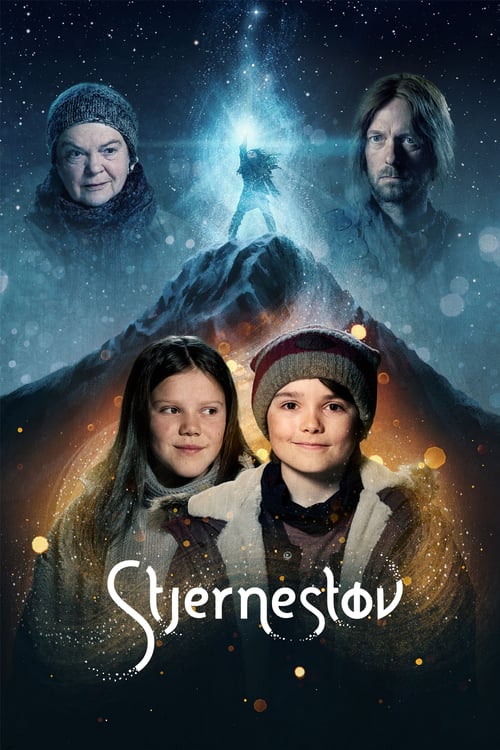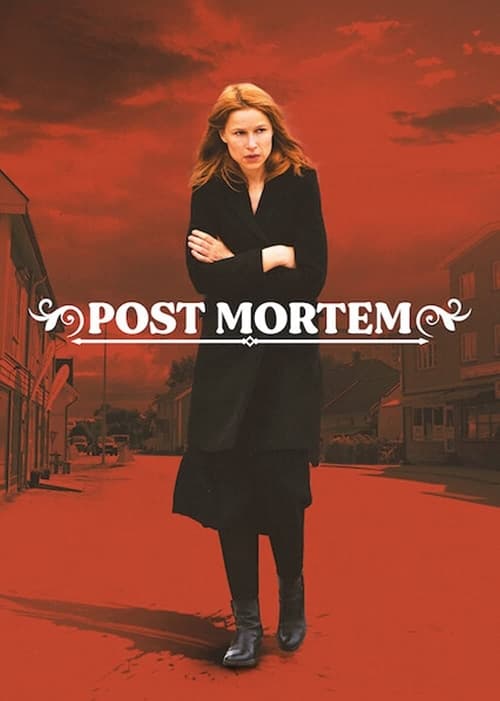
Ask Your Own Question
What is the plot?
In the opening of episode 6, "Yes, We Love This Country," tensions rise in the town of Edda as the community grapples with the aftermath of the recent events. Magne, the protagonist, is increasingly aware of his powers and the looming threat posed by the Jutuls, a family of giants who have been exploiting the town's resources. He feels a deep sense of responsibility to protect his friends and family, especially as he witnesses the environmental destruction caused by the Jutuls' factory.
Magne's internal conflict intensifies as he struggles with his identity and the expectations placed upon him. He seeks guidance from his mother, who remains unaware of the full extent of his powers. Their conversation reveals Magne's desire to do what is right, but he is also burdened by the fear of what he might become if he fully embraces his abilities. This moment highlights his vulnerability and the weight of his destiny.
Meanwhile, the Jutuls, particularly Fjor and Ran, are shown to be increasingly aggressive in their attempts to maintain control over Edda. They hold a meeting with the town's leaders, where they manipulate the situation to their advantage, showcasing their power and influence. The Jutuls' arrogance is palpable, and their disdain for the townspeople becomes evident as they dismiss any concerns about the environmental impact of their operations.
As the episode progresses, Magne's friends, including Isolde and Laurits, rally around him, sensing the urgency of the situation. They discuss their options and the need to confront the Jutuls directly. Laurits, who has his own complicated relationship with the Jutuls, grapples with his loyalty to his brother and the need to stand up against the giants. This internal struggle adds depth to his character and sets the stage for his eventual decisions.
The climax of the episode occurs when Magne and his friends decide to take action against the Jutuls. They plan a confrontation at the factory, where they hope to expose the Jutuls' wrongdoing to the townspeople. The atmosphere is charged with tension as they prepare for the confrontation, each character motivated by their own fears and hopes for the future of Edda.
During the confrontation at the factory, Magne taps into his powers, demonstrating his growing confidence and control. The scene is filled with dramatic visuals as he uses his abilities to challenge the Jutuls. Fjor and Ran retaliate, leading to a fierce battle that showcases the clash between the giants and Magne's group. The fight is intense, with physical confrontations and displays of power that leave the townspeople in shock.
As the battle unfolds, Magne's determination to protect his home shines through. He faces off against Fjor, and their struggle is both physical and emotional, representing the larger conflict between the giants and the people of Edda. The stakes are high, and Magne's resolve is tested as he fights not just for himself, but for the future of his community.
In the aftermath of the confrontation, the townspeople begin to rally behind Magne, inspired by his bravery. The episode concludes with a sense of hope, but also uncertainty, as the Jutuls are not defeated entirely. The final moments leave viewers with a cliffhanger, hinting at the ongoing battle between Magne and the giants, setting the stage for future conflicts and character developments.
What is the ending?
In the ending of "Ragnarok," season 1, episode 6, titled "Yes, We Love This Country," Magne confronts the Jutuls, leading to a climactic battle. The episode culminates in a significant showdown where Magne embraces his powers, and the Jutuls face the consequences of their actions. The episode ends with a sense of unresolved tension, hinting at future conflicts.
As the episode unfolds, we begin with Magne, who is grappling with the weight of his newfound powers and the responsibility that comes with them. The atmosphere is thick with tension as he prepares to confront the Jutuls, the wealthy family that has been exploiting the local community and the environment. Magne's internal struggle is palpable; he feels the burden of his lineage and the expectations placed upon him as a descendant of Thor.
The scene shifts to the Jutul family, who are gathered in their opulent home, discussing their plans to further their control over the town. Their arrogance is evident, and they dismiss the growing unrest among the townspeople. This scene highlights their disregard for the consequences of their actions, setting the stage for the impending conflict.
As night falls, Magne, along with his friends, gathers the courage to confront the Jutuls. The atmosphere is charged with anticipation as they approach the Jutul estate. Magne's heart races, a mix of fear and determination coursing through him. He knows that this confrontation could change everything for him and the town.
The confrontation begins with Magne standing defiantly before the Jutuls, who are taken aback by his boldness. The dialogue is sharp, filled with tension as Magne accuses them of their wrongdoings. The Jutuls, particularly Fjor, respond with arrogance, underestimating Magne's resolve. This moment is crucial as it marks Magne's transformation from a hesitant teenager to a determined warrior ready to fight for his beliefs.
As the confrontation escalates, the scene shifts to a physical battle. Magne taps into his powers, showcasing his strength and abilities. The fight is intense, filled with dynamic visuals of lightning and energy as Magne channels his heritage. The Jutuls retaliate, but Magne's determination fuels his powers, allowing him to hold his ground. The emotional stakes are high, as Magne fights not just for himself but for the future of his community.
In the midst of the chaos, we see glimpses of the townspeople watching from a distance, their expressions a mix of fear and hope. This adds a layer of urgency to the battle, as Magne realizes that he is not just fighting for his own identity but for the collective future of those he cares about.
As the battle reaches its climax, Magne delivers a powerful blow to the Jutuls, symbolizing his rejection of their tyranny. The Jutuls, realizing they are losing their grip, begin to falter. This moment is pivotal, as it signifies a turning point not only for Magne but for the entire town, as they witness someone standing up against the oppressive forces.
The episode concludes with the aftermath of the battle. Magne stands victorious, but the victory feels bittersweet. The Jutuls are left reeling, their power diminished but not entirely eradicated. Magne's friends rally around him, their expressions a mix of relief and uncertainty about what lies ahead. The final moments leave viewers with a sense of unresolved tension, as the Jutuls vow to retaliate, hinting at future conflicts.
In summary, the fates of the main characters are as follows: Magne emerges as a hero, having embraced his identity and powers, but he is aware that the fight is far from over. The Jutuls, while weakened, remain a looming threat, their arrogance undeterred. The episode closes with a sense of anticipation for the challenges that await, setting the stage for the next chapter in this ongoing battle between good and evil.
Is there a post-credit scene?
In "Ragnarok" Season 1, Episode 6, titled "Yes, We Love This Country," there is no post-credit scene. The episode concludes without any additional scenes or content after the credits roll. The focus remains on the resolution of the episode's main plot points and character arcs, leaving viewers with a sense of closure for the season's events.
What significant event occurs during the school trip in episode 6?
During the school trip, a pivotal confrontation takes place between Magne and the Jutul family. Tensions rise as Magne's powers are tested, leading to a dramatic showdown that reveals the true nature of the Jutuls and their connection to the mythological elements of the story.
How does Magne's relationship with his friends evolve in this episode?
In this episode, Magne's relationship with his friends deepens as they rally around him during the school trip. They begin to understand the weight of his responsibilities and the dangers posed by the Jutuls, showcasing their loyalty and support for Magne as he grapples with his identity and powers.
What role does the character of Isolde play in episode 6?
Isolde plays a crucial role in episode 6 as she provides insight into the history of the Jutuls and their impact on the town. Her knowledge helps Magne and his friends navigate the challenges they face, highlighting her importance as a source of wisdom and guidance.
How does the episode explore the theme of environmentalism through the characters' actions?
The episode explores environmentalism through the characters' actions, particularly as they confront the Jutuls' exploitation of natural resources. Magne and his friends become increasingly aware of the ecological damage caused by the Jutuls, motivating them to take a stand against their destructive practices.
What internal conflict does Magne face in episode 6 regarding his powers?
In episode 6, Magne grapples with the internal conflict of embracing his powers versus the fear of the consequences that come with them. He struggles with the responsibility of using his abilities to protect his friends and the town, while also dealing with the pressure of living up to the expectations placed upon him.
Is this family friendly?
In "Ragnarok," season 1, episode 6, titled "Yes, We Love This Country," there are several elements that may be considered objectionable or upsetting for children or sensitive viewers.
-
Violence: There are scenes that depict physical confrontations and aggressive behavior, which may be intense for younger audiences.
-
Themes of Bullying: The episode explores bullying and social tensions among teenagers, which can be distressing for viewers who have experienced similar situations.
-
Environmental Destruction: The show addresses serious themes related to environmental issues and the impact of industrialization, which may evoke strong emotional responses.
-
Family Conflict: There are moments of familial tension and conflict that could be unsettling, particularly for younger viewers who may not fully grasp the complexities of these relationships.
-
Supernatural Elements: The presence of mythological themes and supernatural occurrences may be frightening for some children.
These aspects contribute to a narrative that, while engaging, may not be suitable for all younger viewers or those sensitive to such themes.






















